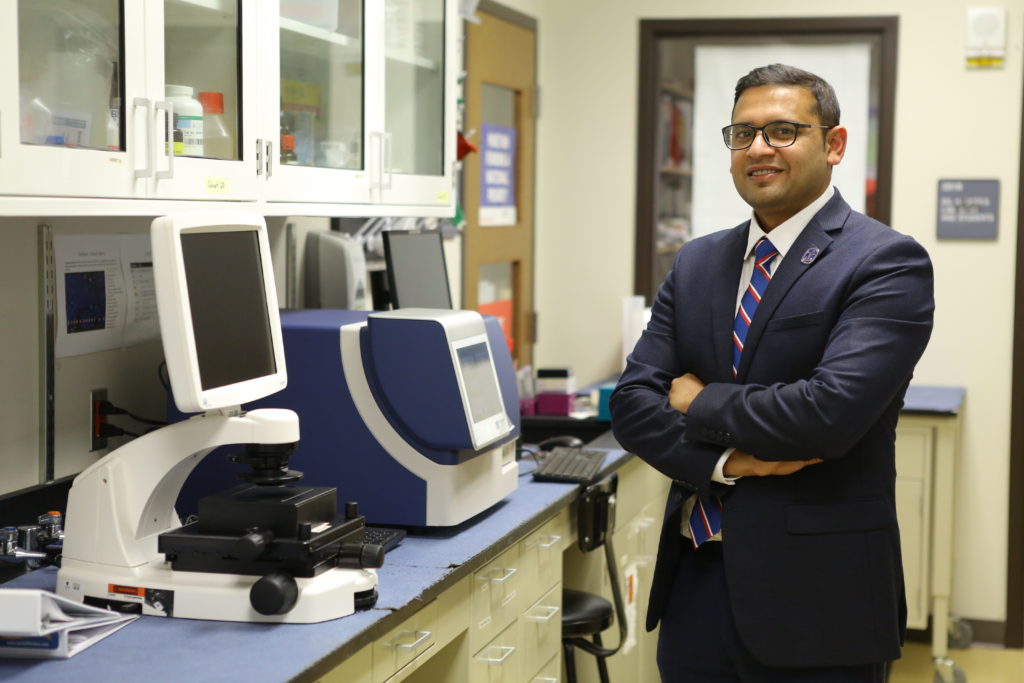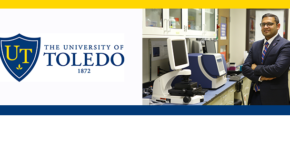
Lab
On University of Toledo Week: Drug resistant cancer requires new technologies.
Amit K. Tiwari, associate professor of pharmacology and experimental therapeutics, says innovation is needed to treat this aggressive malady.
Amit Tiwari is an associate professor of pharmacology and experimental therapeutics. His long-term goal is to develop safe and effective chemotherapy. He specializes in investigating multidrug resistant cancers, and recently identified a new chemotherapy drug that is showing promise in curing triple negative breast cancer, even in cases where patients have developed resistance to conventional chemotherapy.
Multi-Drug Resistance
We are in an exciting era of precision medicine and targeted therapies against cancer. Yet we are losing people to cancer on a massive scale, in part because cancer cells can develop resistance to even the most effective chemotherapies.
This is particularly true of aggressive solid tumors. For example, more than 85 percent of patients with advanced colorectal cancer or triple negative breast cancer develop drug resistance to current therapies.
We often see this phenomenon even in patients whose cancer returns months or years after successful chemotherapy. What makes this issue so challenging for physicians is that frequently when one chemotherapy fails, other drugs that are even chemically and functionally different also stop working. This is referred to as ‘multi-drug resistance,’ which often leads to poor prognosis and survival time.
We have been studying the mechanisms of multi drug resistance for more than 12 years, working to identify new compounds to treat aggressive cancers that have shown resistance to conventional and targeted chemotherapies. Our research suggests beating drug resistant cancer may require a unique, multidisciplinary and integrative approach.
We developed two novel technologies that selectively target and kill highly aggressive and resistant cancer cells by inducing a different form of cell death that does not allow cancer cells to mutate and become resistant.
These highly innovative projects will open new avenues in the areas of drug resistance cancer therapeutics by facilitating the invention of new methods, creating molecular probes and yielding information about unconventional processes of cell death.
Drug development takes time, but we could be closing in on new options for helping patients with aggressive cancers that are currently difficult to treat.

Comments
2 responses to “Amit K. Tiwari, University of Toledo – Multi-Drug Resistance”